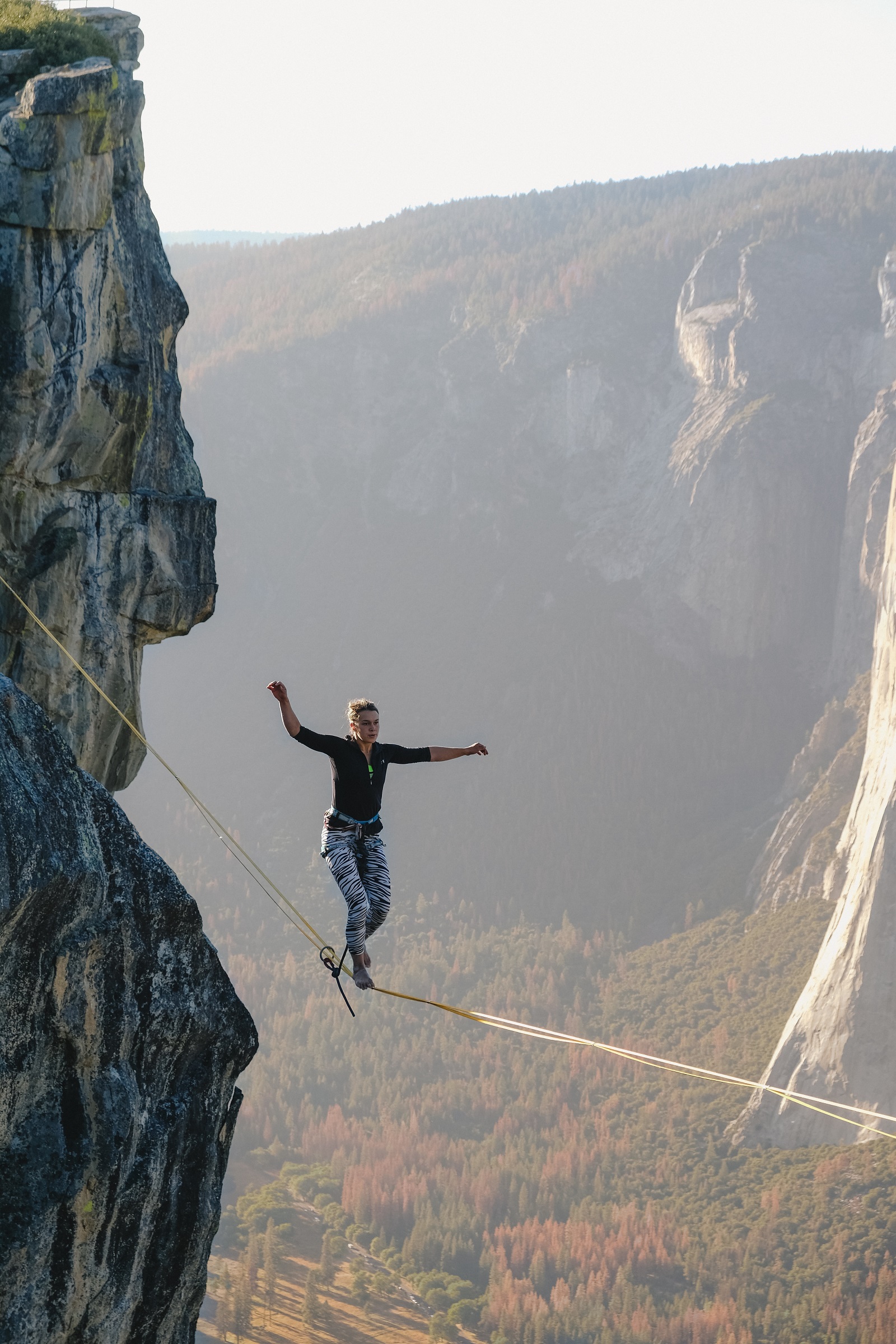The Tightrope of Life
In a letter to his son, Eduard (1930), Albert Einstein wrote: “People are like bicycles.
They can keep their balance only as long as they keep moving.” Like the woman on the tightrope in the picture above, achieving balance is beautifully illustrated by a combination of focus and forward movement towards a goal.
Balance has a rhythm of give and take.
Balance requires a personal awareness of one’s priorities, life mission, and season of purpose. Balance is not the same as busyness and balance reflects periods of rest and Sabbath.
(Busyness and Sabbath are two subjects we will explore in part 2 and 3 of The Illusion of Balance series.)
Like tightrope walking, the motion of balance is not random but has intention and purpose. Without intention and purpose the tightrope walker will fall off the rope and never reach his or her destination. The intention and purpose of any tightrope walker can be measured against the goal they have set for themselves.
How do you measure balance on the tightrope of life?
 With each action you take, to-do list item you add or commitment you consider…ask yourself if it matches your priorities, mission, season of purpose, and current goals.
With each action you take, to-do list item you add or commitment you consider…ask yourself if it matches your priorities, mission, season of purpose, and current goals.
As an illustration, here are the questions I ask myself with each action, to-do list item, and commitment opportunity that comes along my tightrope.
- Does this action show my love for God and/or others?
- Does this action honor my husband and children?
- Does this action match my personal mission statement?
- Does this action distract or add to my current goals?
To recap, the principles of balance are: motion (forward movement), focus, intention, purpose, an end goal, and courage.
Why courage?
You may have noticed that very few people choose tightrope walking as a profession or even a sport. Could it be the fact that tightropes are never close to the ground? Tightrope walking are courageous. The fear of not crossing is bigger than the fear of falling.
In the end, balance requires a person willing to take the first step of courage onto the high wire. This means you are a person who is willing to fall down, to learn from your failures, pick yourself up and jump back on the tightrope.
Walking high above the crowds in a rhythm of intention and purpose into your destiny will never be for the faint of heart. But if you understand and follow the principles of balance you will get there.
